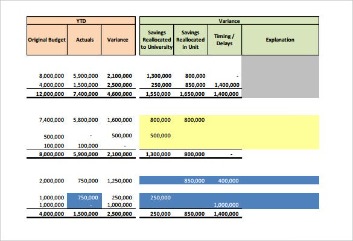Taking time to evaluate partners thoroughly can help identify the ideal payroll match for your organization. We considered a number of companies, and they all brought something different to the table. We ultimately selected ADP, as we found they offered the best overall package and the level of support we were looking for. For accurate payroll, you’ll need to collect personal information including birthdates, Social Security numbers, addresses, wages, and more. Set up a timeline, figure out who’s responsible for what, and highlight the key milestones in the process.
To reduce the risk of a security breach when you outsource, make sure the partner you choose has strict security measures in place. The price of payroll outsourcing is usually transparent, with a flat monthly rate. There are pros and cons to outsourcing, and the right choice will depend on your unique business goals.
Compliance across borders
If outsourcing payroll seems like the best next step for your small business, consider using payroll software. With payroll software, you can easily integrate with your current operations, automate your payroll process, and access 24/7 support from payroll experts. Like with any business decision, you’ll want to know how your business will benefit if you decide to outsource your payroll. what is accounting purpose need and importance Now that you know what outsourcing the payroll process entails, let’s look at the wide range of payroll outsourcing benefits it can provide for you and your business. Now that you’ve zeroed-in on the outsource payroll option best suited for your business, it’s time to start shortlisting your options. Make a list of the different options and include the pros and cons you’ve mentioned before, the prices, and any other details you learned when contacting companies in the previous step.
Top reasons to outsource payroll
Today’s payroll processes can be time-consuming and stressful, which is why 73% of organizations have turned to payroll outsourcing. With an in-house payroll department, you have to pay your internal team’s salaries, benefits, and payroll taxes. You must also cover training to help your team keep up with the latest tools and trends.
Frequently asked questions about payroll outsourcing
- This guide is intended to be used as a starting point in analyzing an employer’s payroll obligations and is not a comprehensive resource of requirements.
- However, large businesses should consider investing in in-house payroll because payroll service providers can get expensive as your business grows.
- You’re also paying for expert hands to manage a diverse set of payroll needs with fewer expensive errors, access to advanced tech, and the flexibility to scale easily.
- Human resources can be outsourced to a separate service, and while some companies offer both (like Deel), a payroll company only handles payroll.
Remember, how banks handle debits and credits this partnership isn’t just about handing over tasks; it’s also about tapping into the provider’s expertise to make the process as pain-free as possible — for both parties. Communicate closely with your payroll provider to ensure the plan is realistic and achievable. One of the biggest issues for payroll clients is hidden fees and “sneaky” costs. As well as being dishonest, these costs can wreak havoc with your hiring budget. If you proceed to a demo or sales pitch, ensure you clarify the vendor’s model, too. Find out as much as you can before committing and ask questions if you need to.
Outsourcing payroll: A pros and cons guide
Once a business has hired its first employee, payroll responsibilities will continue every pay period as long as the business is in operation. The complexities of payroll processing may require a considerable time commitment on a daily and weekly basis — time you can’t make up elsewhere. Before you approach any professional payroll service providers, make sure you’re aware of the payroll requirements needed to successfully and legally perform payroll. Because every business is different in terms of size and location, the manufacturing financial statements payroll functions will differ. There’s no guarantee outsourcing will be cost-effective, but many companies choosing to outsource find it cheaper overall than keeping payroll management fully in-house.
If a company is outsourcing internationally, it shouldn’t assume that it can ignore employment regulations in the provider’s country, as these can be very different from those in the United States. Finding a trustworthy third-party provider goes a long way, but a company can’t just pass off any payroll mistakes that arise as the fault of its provider and move on. At the end of the day, the company is still responsible for properly compensating its employees, and problems created or left unresolved by the provider will continue to cost time and money until they’re addressed. The client company also remains liable for tax remittance whether or not it has outsourced this particular payroll function, meaning it’s on the hook for any errors even if it’s not immediately responsible. If your team isn’t familiar with local labor classification laws, you may be at a greater risk for misclassification.
Ask potential providers how they guard all the sensitive data they handle and don’t settle for platitudes. This is why it’s absolutely crucial to do your homework and partner with a payroll provider that is proven, reliable, and trustworthy. No matter how many employees you’re calculating payroll for, it’s easy to make mistakes or run into delays. And when you add new jurisdictions, you multiply the level of complexity of each payroll run. Alternatively, you can outsource international payroll to a specialist global provider like Remote, which we will discuss further in the article.
Choosing the right provider and establishing open communication channels are essential for optimal results.



